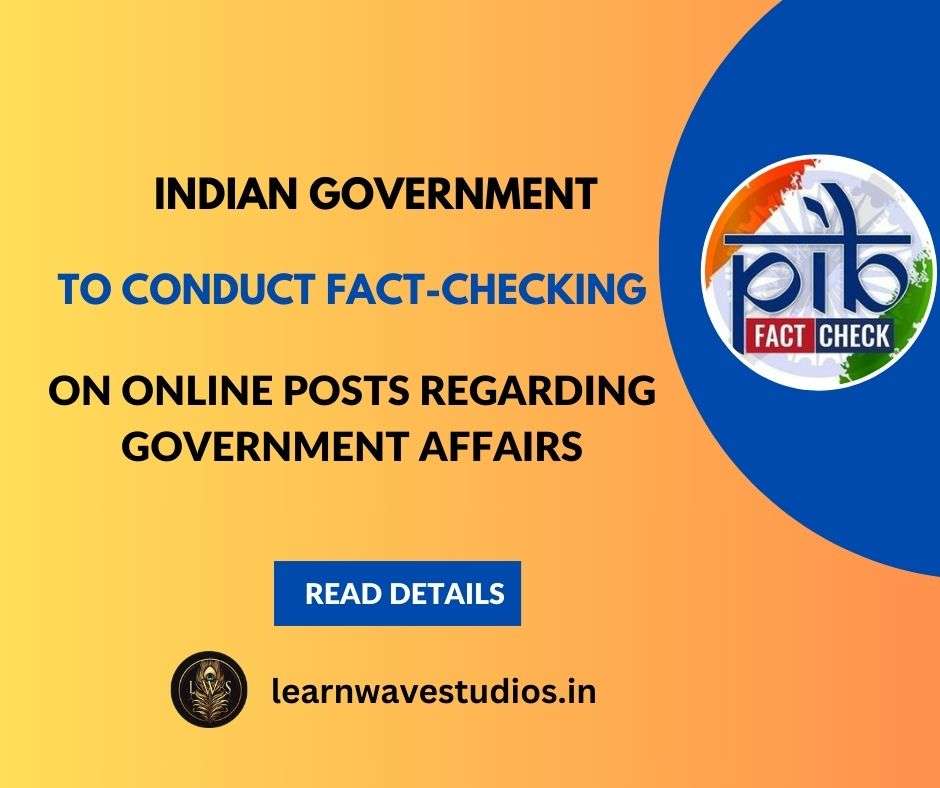India’s Government to Conduct Fact-Checking on Online Posts Regarding Government Affairs to Tackle Misinformation
In recent news from India, a significant development has taken place where the government has granted a government agency the authority to fact-check government-related matters. This move is aimed at curbing misinformation and ensuring the dissemination of accurate information, particularly in the realm of government affairs. Let’s delve deeper into this latest update and what it means for the digital landscape in India.

Understanding the Initiative
The Ministry of Electronics and IT has embarked on a noteworthy journey by reinforcing the fact-checking unit of the Press Information Bureau as the central entity responsible for verifying the accuracy of information surrounding government matters in New Delhi. This step marks a crucial advancement in combating the spread of misleading data on social media platforms .
How Tech Companies Are Affected
With the new mandate in place, tech companies and other entities catering to over 5 million users in India are mandated to take proactive measures to prevent the dissemination of deceptive or misleading information about government-related subjects. This responsibility requires them to uphold the standards set forth by the IT ministry to ensure the veracity of the information reaching the public .
Industry Concerns and Criticisms
While this initiative is geared towards enhancing information accuracy and transparency, it has not been without its share of skepticism and criticism. Various industry stakeholders, including the Asia Internet Coalition representing major tech players like Meta, Amazon, Google, and Apple, have cautioned against the potential misuse of such authority. The reliance on a single governmental agency for fact-checking without well-defined parameters could pose challenges, potentially infringing on press freedom .
Legal Challenges and Public Response
In response to the government’s decision, the Editors Guild of India and comedian Kunal Kamra have taken legal action, expressing concerns over the implications of such a move. There are apprehensions about the creation of an environment that might lead to self-censorship among social media platforms, influencing the free flow of information. The minister of state for IT has maintained that the primary objective is not to censor journalism but to ensure accuracy and accountability in information sharing .
The move to empower a designated government agency with fact-checking responsibilities signifies a proactive step towards combating misinformation and upholding the integrity of information dissemination in India. While the initiative aims to promote transparency and accuracy, it is essential to address concerns regarding the potential impact on press freedom and ensure a balanced approach that safeguards both information authenticity and freedom of expression. Stay tuned for further updates on this evolving narrative as India navigates the landscape of digital information sharing and governance.
By staying informed and engaged, we contribute to fostering a digital environment founded on credibility and truthfulness. Let’s strive for a digital space where accurate information prevails, empowering individuals with the knowledge they need to make informed decisions and engage meaningfully with the world around them.

